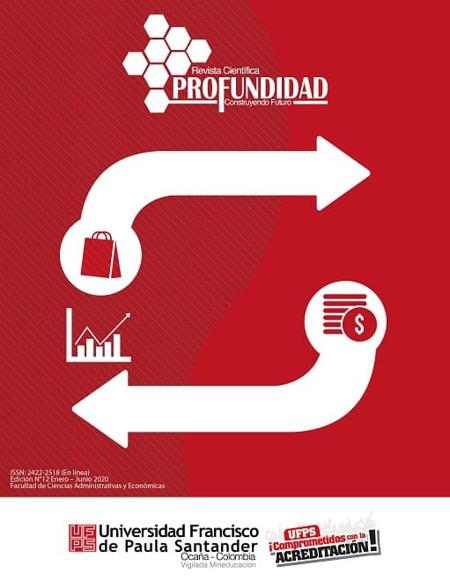Augmented reality for education of financial mathematics. An application to improve university academic performance
Realidad aumentada para la educación de matemática financiera. Una app para el mejoramiento del rendimiento académico universitario
Main Article Content
Augmented Reality is a technology that complements perception and interaction with the real world and allows the user to be in an augmented real environment with additional information generated by the computer. The academic world is not apart from these initiatives and has also started to introduce Augmented Reality technology in some of its disciplines, in this case, in the learning of financial mathematics, however, the knowledge and applicability of This technology in teaching is minimal; among other reasons, it is due to the very nature and state of development of said technology, as well as to its low presence in the daily areas of society. The development of initiatives in the use of this technology in education and its dissemination will contribute to its extension in the teaching-student community. Given the above, this work proposes the use of Augmented Reality applied to Learning Objects, in order to verify its implementation for specific topics, through a mobile application, in this case the subject of Financial mathematics, at the Faculty of Economic Sciences Administrative and Accountants of the University of Sinú.
Downloads
Article Details
Basogain, X., Olabe, M., Espinosa, K., & Olabe, C. R. (2006). Realidad Aumentada en la Educación: una tecnología emergente. Bilbao, Spain: e2006- 3rd. Obtenido de https://www.academia.edu/11246596/Realidad_Aumentada_en_la_Educaci%C3%B3n_una_tecnolog%C3%ADa_emergente
Brfield, W., & Caudell, T. (2001). Fundamentos deInformática usable y Realidad Aumentada.Mahwah, NJ: Lawrence Erlbaum. Revista Colombiana de Tecnologías Avanzadas, 1(19), 9. Obtenido de http://www.unipamplona.edu.co/unipamplona/portalIG/home_40/recursos/04_v19_24/revista_19/09022012/09.pdf
Cabero Almenara, J. Moreno Martínez, N. M. y Leiva Olivencia, J. J. (2014). Realidad aumentada y educación: innovación en contextos formativos. Barcelona, Ediciones Octaedro, S.L. Recuperado de https://bibliotecavirtual.unisinu.edu.co:2844/es/ereader/unisinu/113894?page=84
Di Serio, A. et al. (2013). «Impact of an augmented reality system on students’ motivation for a visual art course». Computers & Education.
Hilbert, M., Bustos , S., & Ferraz, J. C. (2019). La sociedad de la información en América Latina y el Caribe: desarrollo de las tecnologías y tecnologías para el desarrollo. (W. P. Hilbert, Ed.) CEPAL. Obtenido de https://repositorio.cepal.org/bitstream/handle/11362/2537/1/S0900902_es.pdf
Rosanigo, Z. B., & Bramati, P. (2010). Objetos de Aprendizaje. Comodoro Rivadavia Argentina. Obtenido de http://sedici.unlp.edu.ar/bitstream/handle/10915/19934/Documento_completo.pdf%3Fsequence%3D1
Otegui Castillo, J. (2017). La realidda vitual y la realidad aumentada en el proceso de marketing. Revista de Dirección y Administración de Empresas, 155-229. Obtenido de La realidad virtual y la realidad aumentada en el proceso de Marketing.










